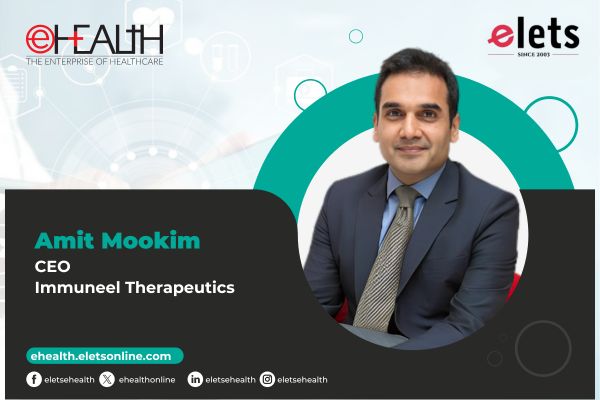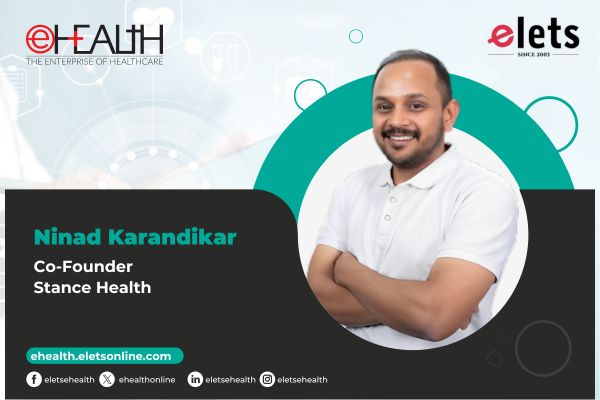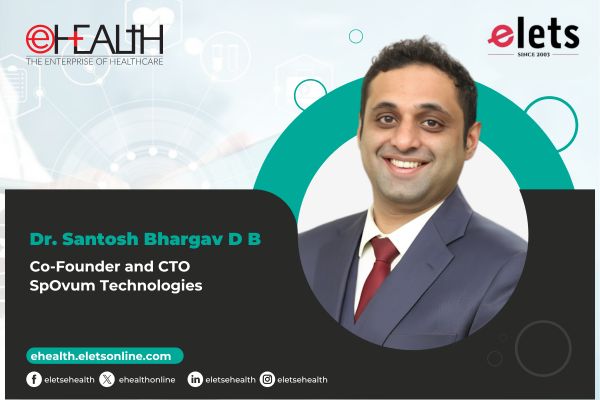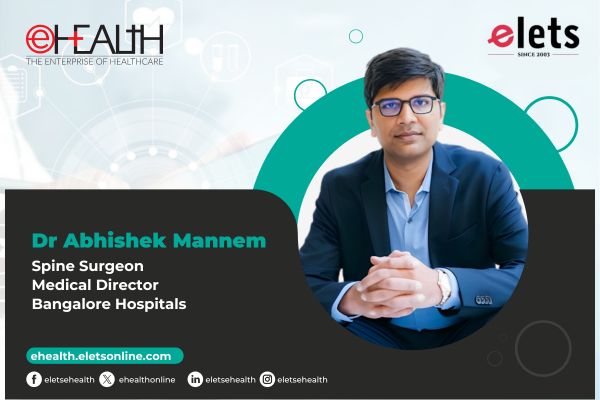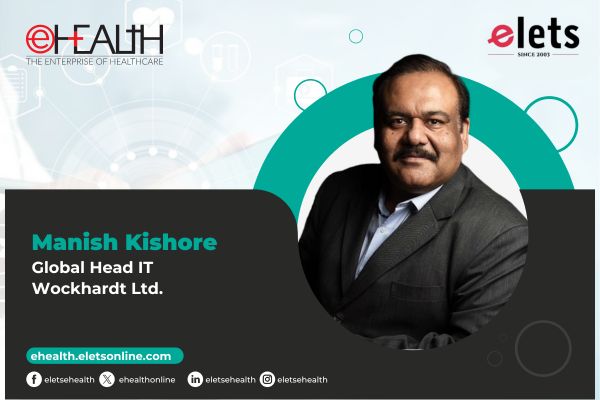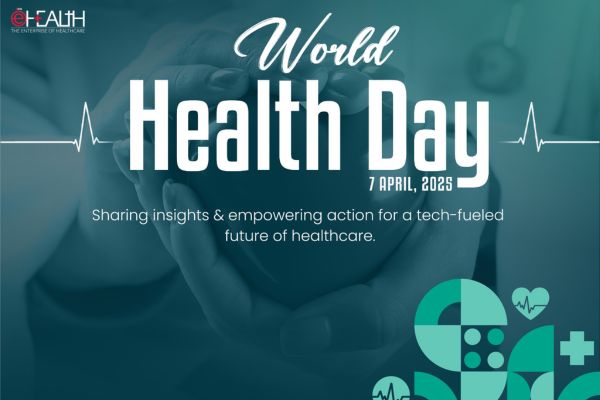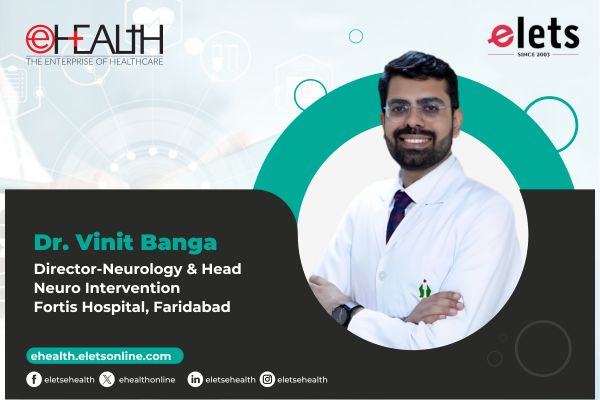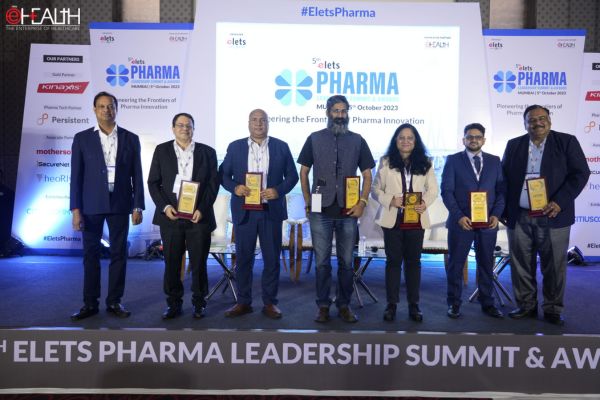
In an era where data is equated to gold, the pharmaceutical sector stands on the cusp of a monumental transformation. A recent discussion titled “Harnessing the Power of Data, Innovation, and Technology in Pharma” took place at the 5th Elets Pharma Leadership Summit & Awards on 5th October, held at the Holiday Inn in Mumbai.
Delving into the profound effects of advanced analytics, cutting-edge technologies, and pioneering innovations, the panellists discussed how industry leaders in pharma are using these tools to advance research, improve patient outcomes, and reshape the trajectory of the pharmaceutical industry. Edited excerpts:


Dr Deepa emphasized the pivotal role of data and innovation in the progression of any industry, especially the pharmaceutical sector. Drawing a parallel with India’s diverse climate and food habits, which cannot be easily generalised, she remarks on the multifaceted nature of technology and healthcare in India.
She stated, “India stands at an intersection: while it may not have a consolidated system of electronic health records, it is a leader in global technological innovations. Despite not holding numerous patents within its borders – a choice often driven by commercial factors – India is at the forefront of the tech industry, particularly in the realm of AI. However, for AI to be truly effective, there’s a need for quality input data.”
She expressed that it’s crucial for India to holistically handle data from its creation to storage, management, and eventual output, while ensuring its protection and confidentiality, especially in sensitive sectors like healthcare.
Highlighting the distinction between automation and AI, she suggests that while AI demands vast amounts of data and faces regulatory hesitations, especially in areas like healthcare, automation relies more on logic and can be implemented more swiftly. The goal is to potentially have AI replace certain healthcare functions, but it necessitates a robust data foundation.
Manish Kishore, Global Head IT, Wockhardt Ltd
Technologies play a pivotal role in shaping the future of various sectors. There are a multitude of technological arenas, ranging from AI, machine learning, 3D printing, gene modification to precision medicine. However, for any organisation, it’s imperative to maintain a clear focus. Instead of merely adopting the latest technology, it’s crucial to question its relevance to the organisation.
He focused on the key considerations that should be included before embracing any technology. Those are:
• Its specific use and relevance to the business.
• Whether the organisation has the capacity or bandwidth for it.
• The ability to scale and sustain that technology over time.
• Availability of trained personnel to harness the technology effectively.
He further added, “In India, there’s an evident eagerness to adopt advancements like AI, machine learning, and platforms like Chat GPT and LMS. But without a well-defined focus, this can lead to inefficiencies. This lack of clarity might be why a significant portion, possibly up to 90 per cent, of such projects do not see long-term success.”
However, white papers and articles in the pharma sector suggest that the potential of these technologies is vast.
Narendra K Saini, Chief Digital & Data Officer, Lupin Ltd
“Many people discuss the advancements of Pharma 4.0 without understanding its predecessor, Pharma 3.0. Few are even looking ahead to Pharma 5.0. Technology is ever-present and should address business issues. It’s crucial not to get caught up in technology hype, as many did between 2012 to 2015, thinking cloud solutions would be an all-encompassing cheap solution. It wasn’t, leading some to adopt hybrid models. The motivation often stems from a fear of missing out, as many firms lagged behind in the past due to late technology adoption”, shared Narendra while delivering his speech at the 5th Elets Pharma Leadership Summit & Awards.
Business objectives should dictate technological adoption. While it’s wise to set aside some budget for experimentation, substantial investments should align with business goals. When discussing automation, it’s a concept that’s been central to IT for years. Past coding efforts were aimed at automation, much like current endeavours. However, today’s automation is more intelligent and capable of handling more intricate tasks, and in recent years, the pharma sector has made significant advancements in this area.
Bijender Mishra, Global IT Head & Global CISO, Alkem Laboratories
The pharmaceutical industry is evolving rapidly due to advancements in technology. Recent reports suggest that the pharmaceutical technology market could reach $150 billion USD in the next five years. This shows a significant growth in demand.
“Technology integration is crucial at every stage in pharmaceuticals, from drug discovery to development and delivery. Additionally, artificial intelligence (AI) has been notably beneficial in enhancing manufacturing processes and identifying suitable patients for clinical trials. In essence, technology is pivotal for the future of the pharmaceutical sector and should be integrated throughout its processes”, he added.
Sanchit Nanda, Senior Director (India, South and South East Asia) Global Patient Solutions, Gilead Sciences
Over time, technology has changed significantly, and its evolution can be divided into two main phases. The first phase includes development, incubation, trials, innovation, and early adoption. The second phase is when the technology truly takes off.
He shared, “A prime example of a technology set to make a big impact this decade is precision medicine, which is expected to significantly affect our lives in the next 5 to 10 years. This impact is similar to how the internet revolutionised e-commerce, becoming a daily topic of conversation for over 500 million Indians.”
Precision medicine is likely to become prominent between 2025 and 2030 for two main reasons. Firstly, the cost of development and usage is decreasing, which usually spurs adoption. Secondly, the widespread use of smartphones plays a crucial role. While precision medicine involves understanding genes and genetic makeup, it also requires knowledge of an individual’s lifestyle and environment, areas where smartphone technology has made substantial advancements.
Additionally, he said, “This approach is particularly important for treating conditions like cancer and rare diseases by allowing for the “fingerprinting” of molecules. Such specificity not only leads to better patient outcomes but also brings down overall costs, making treatments more cost-effective.”
While the initial growth may be gradual, it’s expected to rapidly increase soon after. Experts predict that in a few years, the global market for precision medicine could exceed 100 billion dollars. Given its potential, there’s no reason why this technology wouldn’t spread to other regions globally.
Yogendra Yadav, Director IT, Sai LifeSciences
Artificial intelligence (AI) thrives on strong human intelligence. If we don’t understand our manual processes, automating them can be challenging. Often, technology, whether AI, machine learning, or deep learning, serves to enhance predictions. Similarly, in healthcare, tools like X-rays and CT scanners improve diagnostic predictions. However, accurate predictions require human judgment. Once this judgement is made, clear actions must be defined.
He shared a three-tiered approach that his organisation adopted, which are:
• System of Records: We capture all generated data.
• System of Optimisation: From this data, we extract information to improve and optimise processes. For instance, helping chemists conduct more experiments or increasing production yield.
• System of Transformation: 30 per cent of our energy is channeled into top-tier AI and machine learning projects.
“In the realm of life sciences technology, we’re developing private large language models (LLMs) for better knowledge management. The pharmaceutical industry has numerous Standard Operating Procedures (SOPs). These are often uploaded to learning platforms where users scroll through without truly understanding. To address this, we’re feeding these SOPs into an LLM. The result is a digital assistant that provides information from pre-approved procedures when asked by an analyst or chemist”, he further explains.
Such initiatives simplify processes, bring value, and can expedite discoveries. In board meetings, it’s crucial to avoid tech jargon since there’s a varied digital understanding among members. Thus, they have established a digital innovation lab with a mix of tech experts and domain experts. This promotes knowledge sharing and leads to better outcomes.
In essence, technology should be a tool that aids us, not complicates our processes.
Be a part of Elets Collaborative Initiatives. Join Us for Upcoming Events and explore business opportunities. Like us on Facebook , connect with us on LinkedIn and follow us on Twitter , Instagram.
"Exciting news! Elets technomedia is now on WhatsApp Channels Subscribe today by clicking the link and stay updated with the latest insights!" Click here!




